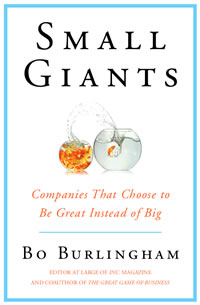
Wednesday, May 31, 2006
new media ecosystem?

This article by, John Naughton, foresees the end of traditional broadcasting and the rise of a new media ecology. Sounds like a horribly pretentious idea, but it's really an interesting analogy : His idea is that new media innovations destabalise and cause shifts and swings within a constantly shifting landscape - much like the ebb and flow of the natural world. Sounds more involved than it is - which is a basic guide to how the internet is changing the way we consume content.
Friday, May 19, 2006
great resource for presentations

Explore the www according to The Generator Blog to discover many, many different generators that allow you to customise an image or sign with your own text.
Update : More here (record, cassette etc)
Via Russell Davies,
Thursday, May 18, 2006
SIRC articles
 Sirc is an independent, non-profit organization that tracks social trends in the UK. As such they're amassing a valuable, free to access library of articled on a variety of ethnographic and sociological topics.
Sirc is an independent, non-profit organization that tracks social trends in the UK. As such they're amassing a valuable, free to access library of articled on a variety of ethnographic and sociological topics.Many of their reports have been comissioned by brands with the proviso that they are allowed into the public domain. Some examples :
Happy Homes - what makes a good home?
The Noughties - The decade of diversity
Evolution, Alienation and Gossip - the role of mobile telecommunications in the 21st century.
The Smell Report
The psychology and anthropology of scent
Mirror, Mirror...
A summary of research findings on body image
Too many options...
 Great new book, the Paradox of Choice. It considers the 'analysis paralysis' of our developed economy with its plethora of brand choice and social possibility.
Great new book, the Paradox of Choice. It considers the 'analysis paralysis' of our developed economy with its plethora of brand choice and social possibility."Everyone agrees that having choice is better than not having choice. It seems evident that if choice is good, then more choice is better. The paradox is that this "obvious" truth isn't true. It turns out that a point can be reached where, with more choice, people are worse off.
People can't ignore options - they have to pay attention to them. If they make a choice, is there another choice would have been better? There's more effort put into making decisions, and less in enjoying them. What's nagging is the possibility that, if they had chosen differently, they could have gotten something better."
The effect on today's youth, the so-called quarter life crisis, the panic and procratination surrounding 'settling down' is specifically considered in this article from the UK's Social Issues research centre called 'Lifeshopping'.
More on the Paradox of Choice:
read more here.
Friday, May 12, 2006
bed genius
 A great space saving idea in theory, wonder what it's like in practise...
A great space saving idea in theory, wonder what it's like in practise...Too pricey by half at the suggested hundreds of dollars price tag (see here)
IKEA, you know what to do...
Thursday, May 11, 2006
Brand You II
 Managing your career as you would any brand is a classic no-brainer for anyone working in strategy. But it's often never as simple as that. After all, it's harder to get perspective when you're so close to something. But no excuses - physician heal thyself.
Managing your career as you would any brand is a classic no-brainer for anyone working in strategy. But it's often never as simple as that. After all, it's harder to get perspective when you're so close to something. But no excuses - physician heal thyself.Catherine Kaputa's list of top 10 career strategies are startling unoriginal but still offer relevance when viewed through the prism of your own situation. Well, at least, it got me thinking.
1. Be the First
2. Be the Leader
3. Take the Anti-leader Position
4. Own an Attribute
5. Use a Magic Ingredient or Invent a New Process
6. Be the Expert
7. Be Preferred
8. Set a High Price
9. Use Your Special Heritage
10. Own a Cause
Read more in this interview, here
Wednesday, May 10, 2006
The price is right
 Thanks to Russell Davies (the very nice man who's doing for planning what Patrick Moore did for stargazing) for the tip off about Tim Harford's book, The Undercover Economist.
Thanks to Russell Davies (the very nice man who's doing for planning what Patrick Moore did for stargazing) for the tip off about Tim Harford's book, The Undercover Economist.Having digested this engaging extract on the nuts and bolts of price sensitivity I think i'll wait until the price drops and its published in paperback ...
Click here for Tim's advice on why less is more when it comes to giving presentations which will appeal to buddists and slackers alike.
Wooden LED Clock

Wonder whether this lovely wooden clockalarm tells you the year by the number of rings in the grain...
Just good enough, just isn't good enough

Competence, an ugly word. Like "satisfactory", it has a smug air about it that masks a lack of ambition or potential. It's a Jobsworth word. Good and safe. This Seth Godin article reinforces the simple idea that competence - be it at the individual or a company level - is the enemy of average-defying greatness:
"Competent people are quite proud of the status and success that they get out of being competent. They like being competent. They guard their competence, and they work hard to maintain it. Bob Dylan, on the other hand, is an incompetent musician. From year to year, from concert to concert, there's just no way to be sure that he'll deliver exactly what you're expecting. Sometimes, he blows the world away with his insight, his energy, and his performance. Other times, he's just so-so."
Tuesday, May 09, 2006
Bring on the Small Giants

"Small Giants by Bo Burlingham. How maverick companies have passed up the growth treadmill—and focused on greatness instead."
Shockingly enough, some companies are only in it for the money. They hope to grow big and profitable to be sold, rather like fattening a calf for the market. The company is the means to a financial end. Some companies purposely stay small and concentrate on maintaining their 'mojo,' the magical, somewhat ephemeral quality that often defines them : their Soul. The company an end in itself, meaningful employment for its workers or simply just being the best. The by products of great reputation and handsome profit seems to follows.
BB's suggests their are 7 tenents at the core of small but great businesses (my headings)
1. Know what you want & develop a meaningful brand positioning
"First, I could see that, unlike most entrepreneurs, their founders and leaders had recognized the full range of choices they had about the type of company they would create."
2. Going your own way means constnatly making the tougher decision "Second, the leaders had overcome the enormous pressures on successful companies to take paths they had not chosen and did not necessarily want to follow."
3. Be a living part of your community. No, really...
"Third, each company had an extraordinarily intimate relationship with the local city, town, or county in which it did business -- a relationship that went well beyond the usual concept of `giving back.'"
4. Make sure business is always personal.
"Fourth, they cultivated exceptionally intimate relationships with customers and suppliers, based on personal contact, one-on-one interaction, and mutual commitment to delivering on promises."
5. If business is personal, your workplace should reflect that.
"Fifth, the companies also had what struck me as unusually intimate workplaces."
6. There is no magic 'fits all' company structure.
"Sixth, I was impressed by the variety of corporate structures and modes of governance that these companies had come up with."
7. Real enthusiasm for what you do should fire your ambition over more practical considerations.
"Finally, I noticed the passion that the leaders brought to what the company did. They loved the subject matter, whether it be music, safety lighting, food, special effects, constant torque hinges, beer, records storage, construction, dining, or fashion."
Sunday, May 07, 2006
Time for Gehry

Not quite the postmodern fantasy it might have been, Gehry's watch design for Fossil, elegantly talks time the way we all do, rather than the way all watches seem to.
Friday, May 05, 2006
FLICKR fun

Iain Tait's blog has bought me this gem of a FLIKR interface.
Great for exploring visual associations and sparking off fresh ways of looking.
Look, See, Here
Thursday, May 04, 2006
First idea time capsule

First thoughts are precious.
Out of the mouths of babes. Fresh eyes and all that.
Even if your initial inclinations are just poorly formed hints at where you think the brief is taking you, blink, and scribble it down. Channel those early brainwaves into a envelope and then limber up and embrace the big think. (Mail it to yourself if you like.)
Should you later find yourself later wallowing in plannerly procrastination or overcooking the thinking, those first sparks may guide you back to earth. Perhaps think of that envelope as a time-capsule. Open it up once the campaign is in the can and see how far those virgin thoughts traveled.
Cover Version?
 Cover versions, mash-ups, reinterpretations, remixes, reimaginations, reincarnations. The essence of creativity is taking two existing units of meaning and pushing them together like tectonic plates to push up new matter from what lies beneath.
Cover versions, mash-ups, reinterpretations, remixes, reimaginations, reincarnations. The essence of creativity is taking two existing units of meaning and pushing them together like tectonic plates to push up new matter from what lies beneath.Great cover versions involve a singer/band taking on an unexpected song, often outside their regular category to give the known a fresh perspective. In the clash between 2 famous entities magic can happen.
What if you brand 'did' an unlikely, but fantastically genius cover version. Which song would it be and why? Perhaps this is a way of gettig past the usual category dogma and onto pastures new.
For inspiration, check out this article of the top 50 cover versions of all time. Here's a choice observation from the write-up of The Flying Lizards electro revisiting of the rock'n'roll classic, 'Money (that's what I want)' : "Deborah Evans speaks the lyrics deadpan, in the style of an upper-class English dominatrix. Key moment: The way Evans sounds as if she's going to come to your house, whip in hand, and retrieve the cash personally.'
Basic Instincts

Basic Human Drives from adliterate.com
1. Sex/romance
2. Acquisition/saving
3 Bonding/connecting
4. Learn/curiosity
5. Eat
6. Defence/fight or flight
7. Nest
8. Vengence
9. Status
10. Power
11. Loyalty
12. Order and organisation
13. Independence
14. Acceptance
15. Altruism
16. Physical activity
Very Maslow, see next post...
Brand "You"
 Seems a bit old hat now to talk about employees as individual brands vying for attention in the work-market-place.
Seems a bit old hat now to talk about employees as individual brands vying for attention in the work-market-place.Still Tom Peter's advice on actively managing your profile to standout from the crowd is as relevant as ever. Find it here.
Mirror neurons
 A recently discovered system in the brain may help explain why we humans can get so worked up watching other people.
A recently discovered system in the brain may help explain why we humans can get so worked up watching other people.Mirror neurons seem to play a key role in how we relate to each other : the mechanics of empathy. The basic theory is that the brain cannot easily tell the difference between something actually happening to you and the percieving the same action happen to someonelse. It explains why we cry at sad films, how we learn and how we got such a leg up the evolutionary ladder amongst other things...
Watch a PBS film about Mirror Neurons here
Reinventing the brand
 Click here for Scott Bedbury's Ad Age Article, 'Rethinking Every Rule of Reinvention'
Click here for Scott Bedbury's Ad Age Article, 'Rethinking Every Rule of Reinvention'
Links

